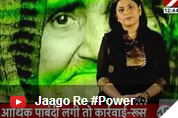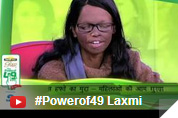The Power Of 49 Manifesto
Between February 21 to March 14 2014, a discussion was aired every Friday on CNN-IBN where specific issues affecting women in our country were addressed. At the end of each show, action points were discussed, which when implemented by the powers-to-be, will help address the issues more effectively.
Solutions have been discussed. The time is to now take action!
Presenting the Power Of 49 Manifesto - where the real concerns of real people will be escalated to authorities with a single motive - to make the resolution of women's issues the need of the hour.
With this manifesto, we hope that you, the voter, will be enabled to make an informed choice and vote for the party that will make women's issues it's top priority. Because resolving the concerns that affect women, will be beneficial for the country as a whole!
Key Highlights of the Power of 49 Manifesto
- Politicians must lead by example by displaying zero tolerance for perpetrators of domestic abuse and dowry in political parties
- Address the under representation of women in the parliament through increased representation in party ticket distribution as well as cabinet
- Make gender sensitisation for boys a compulsory part of the school curriculum from Std. V to XII in order to counter eve-teasing
- Increase percentage of women police personnel from current 5% to at least 33%
- Build a combined 'front line army' of government workers, NGOs, local health and sanitation workers with accredited social health activists
- Build 1 crore women toilets within a year with privacy and 24/7 access to water
- Provide mandatory creches and women-friendly maternity policies that include long-term leave-both rural and urban
- Incentivise schooling for girls by providing financial saving schemes and free transportation
- Install GPS on all buses, double the number of street lights and provide round-the-clock public transportation for women
- Provide complete medical, legal and psychological support to victims of domestic violence by instituting special family counselling centers in government buildings and policy centres








